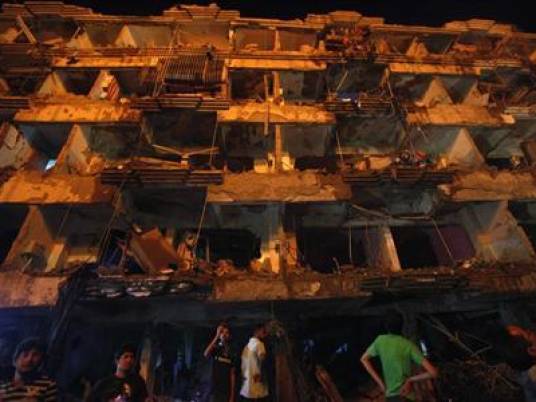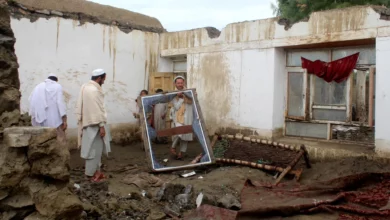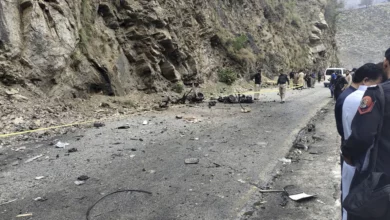
Eight Shi'ite members of Pakistan's ethnic Hazara minority were killed, and one wounded, on Thursday, after gunmen opened fire on a bus in the volatile province of Baluchistan, police said.
No one immediately claimed responsibility. Lashkar-e-Jhangvi, a radical Sunni militant group, has carried out many gun and bomb attacks on Hazaras in the past.
The men were returning from a vegetable market when gunmen intercepted the bus.
"Two gunmen boarded the bus and shot the men," police officer Imran Qureshi told Reuters. All the victims were Shi'ite Hazaras, said Asad Raza, another senior police officer.
Television broadcast images of the bus surrounded by security officials after the attack.
The attack on the Hazaras was followed by an explosion targeting a car used by security forces. A bomb planted in a nearby motorcycle killed two people and injured 12, police said.
"The target of the blast was a Frontier Corps vehicle patrolling the area," said senior police officer Imran Qureshi.
Hundreds of Shi'ite Hazaras have been killed in bomb attacks and shootings in southwestern Baluchistan in the last few years.
Lashkar-e-Jhangvi has virtually turned Quetta, where the Hazara community is concentrated, into a hunting ground for Shi'ites, with leaflets shoved under doorways warning they are infidels deserving to die.
Given the history of attacks on Hazaras, police usually provide them with security when they go shopping in the main fruit and vegetable market in the city of Quetta.
"This particular group of Hazaras had not informed us about their movement," senior police officer Aitzaz Goraya said in televised remarks.
As many as 200,000 Hazaras have moved to other cities or abroad, Tahir Hussain Khan, an official of leading rights group the Human Rights Commission of Pakistan, said this month.
Shi'ite Muslims make up about a fifth of Pakistan's population of around 180 million. More than 800 Shi'ites have been killed in attacks in Pakistan since the beginning of 2012, according to Human Rights Watch.




